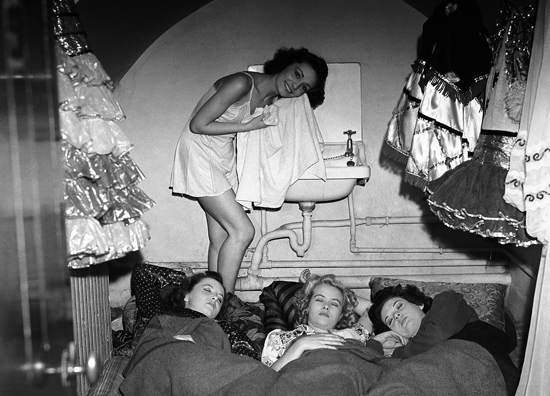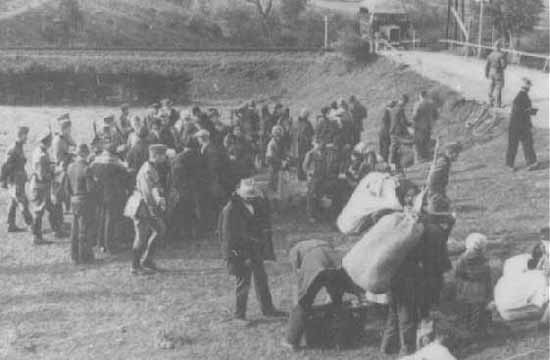Air Operations, Mediterranean
As a retaliation for the events at Dakar, Vichy air forces raid Gibraltar. The attack is ineffective.
[Battle of Britain
Day 77
Weather - Early morning fog and haze over most areas. Clearing later in day, but Channel remaining hazy.
Combat - At 0830hrs a large raid of over 200 aircraft crosses the coast between Dover and Dungeness, consisting of mainly Ju-88's and Me-109's. As they approach London the Spitfires of No: 72 and 92 Squadrons, both from Biggin Hill, are heavily engaged by the Me-109's. Both the Spitfire squadrons lose aircraft without inflicting any losses to the raiders whilst all other R.A.F. squadrons scrambled have been recalled as the bombers turned back without executing their attack.
Just after 1100hrs two waves of attacks cross the Kent coast. The first crosses near Dover and the second over the east near Ramsgate to attack coastal towns. Although several squadrons are scrambled, most fail to intercept due to poor weather and cloud cover but Hurricanes of No: 17 Squadron, scrambled from Debden, are attacked by Me-109's of JG26 led by Major Adolf Galland.
Over the next few hours many reconnaissance raids are made over southern England until about 1330hrs when a large raid of Me-110's and Me-109's approach the Isle of Wight and head straight for the Woolston aircraft factory in Southampton. The attack is fast and most of the raiders have returned back towards France before nearly all the squadrons scrambled to intercept could reach the area. Spitfires of No: 41 Squadron do manage to engage Me-109's over the Channel but lose two aircraft in the dogfight.
Shortly after 1600hrs another raid, consisting of Do-17's, He-111's and Me-109's, is plotted approaching the Isle of Wight and Southampton. As they cross the coast and turn inland, Hurricanes of No: 56, 238, 605 and 607 Squadrons along with Spitfires of No: 66, 152 and 609 Squadrons have been scrambled to intercept. The Hurricanes of No: 605 Squadron engage Do-17's and some fleeing He-111's are attacked by Spitfires of No: 66 Squadron over Kent.
During the night most of the bombing raids are made on London with a few on Liverpool, the Midlands and Dundee.
R.A.F. Losses: 15 aircraft damaged or destroyed, with 2 pilots killed and 5 wounded.
Luftwaffe Losses: 20 aircraft damaged or destroyed, 16 pilots and aircrew killed or missing and 6 wounded.
NOTE: Losses include non-combat patrols and accidents.
[Battle of the Atlantic
- The British submarine Tuna sinks the German steamer Ostmark (1280t) off Belle Ile.
- The British steamer Continental Coaster (555t) is sunk by German motor torpedo boat S-30 in the North Sea with the loss of 4 crewmen.
The Blitz
London is bombed by the Luftwaffe. Fire brigades tackle more than 1,000 fires.
The Windmill Theatre Carries on for the People of London |
 |
French West Africa
The carrier Ark Royal sends aircraft to bomb the coastal batteries at Dakar and the battleship Richelieu. In the action for the day, the British battleship Resolution is hit by shellfire and inflicted with minor damage.
[Occupied Poland
German rule in Poland was extremely harsh. German authorities regarded the Polish population as a supply of forced laborers. A campaign of terror was directed against members of the Polish intelligentsia, many of whom were killed or sent to the camps. Polish teachers, priests, and cultural figures, who might form the core of a resistance movement, were especially targeted for persecution. The Germans destroyed Polish cultural and scientific institutions and plundered national treasures. Poles were supplied only with starvation rations, as the bulk of the country's food was confiscated by the Germans for their home front.
Assembly Point for Displaced Poles |
 |